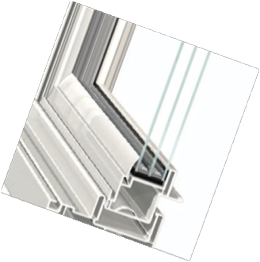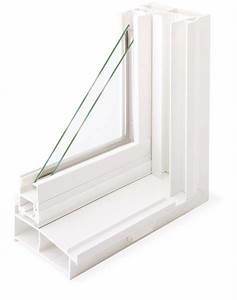Triple Pane Windows vs Double Pane Windows
Thinking of replacing your old drafty windows. Confused about triple pane windows vs double pane windows.
Energy Efficiency
Low-E (low emissivity) is a multi-layer coating on the glass that reflects heat. But not all Low-E is created equal. The amount of heat reflected is shown in two ratings. The U-Factor is a rating of heat reflected back into your home (winter) and the SHGC is a rating of heat reflected away from your home (summer). These Energy Performance Ratings are indicated on a NFRC label attached to the window. You want to see these numbers as low as possible, the lower the number the more energy efficient the window. If saving money on your heating bills is important, always ask about the U-Factor of their window. Lower the better.
Many companies sell double pane windows with a U-Factor of .30 and even as high as .35. Heat Blocker Extreme triple pane windows with TG2 heat reflective Low-E glass have a U-Factor range of .19 -.23! The Heat Blocker Extreme is one of the most energy efficient residential windows available. Triple pane could save you more money on your heating & cooling bills than double.


Noise Reduction
Even today’s double pane technology blocks more noise than older double panes. Triple pane windows with the extra layer of glass blocks even more noise that most double panes. Triple panes are not sound proof, but the difference between double pane and triple pane can be significant.
Cost Factor
Built into the cost a company sells their windows is the cost of overhead. Many companies have salesman, sales managers and warehouse managers, warehouse and showroom rents, office staff, insurance, utilities, advertising cost, 0% financing, and more. All this adds up to the overhead cost they need to include in the price of their windows. A triple pane upgrade could be as much as 50% more expensive than double pane. Many companies will try to convince you that triple pane is not worth the extra cost based on our mild Oregon climate. But what if?
What if there was no extra cost?
What if triple pane was actually less expensive than their double pane?
What if a company had very little of that expensive overhead?
What if you could deal directly with the owner, no salesman?
What if the owner came to your home, no showroom rent or staff cost?
What if you could have more energy efficient & noise blocking triple pane for up to 60% less than most other companies sale prices for double pane?
No more what ifs!
David Thomas, owner of Royal Exteriors, has been doing just that, saving homeowners thousands on their new windows for over 13 years.
Red Flags And Salesman’s Secrets
1) Both home for presentation: If a company requires that all homeowners be present during the sales call, chances are you are in for a long high-pressure buy now sales pitch. Companies know a decision won’t be made that day without all homeowners present.
2) Start high then negotiate: Some companies start high (extremely high) then offer big discounts such as buy today, BOGO, free installation, participate in some advertising program, etc. Nothings free! It’s all built into the final “sale price” offered. No matter how big the discounts or how good a negotiator you think you are, even if you get 1/2 off the “regular price” you still could be paying up to 50% more than you need to pay for quality energy efficient windows. The larger the “buy today” discount the more they don’t want you to get another quote. Royal Exteriors is not afraid of other companies, the more you see the better I look!
3) Custom sizes: You might be told your windows will require custom sizes and that affects the price. Most all windows are custom sized and should not affect pricing.
4) Door to Door appointments: Companies that use door to door appointment setters are often the most expensive and may use high pressure buy now sales tactics.
5) Deposit required: Never give a deposit at signing. You should not pay for your windows until they are installed and the job is complete. Pay upon completion, not before.
